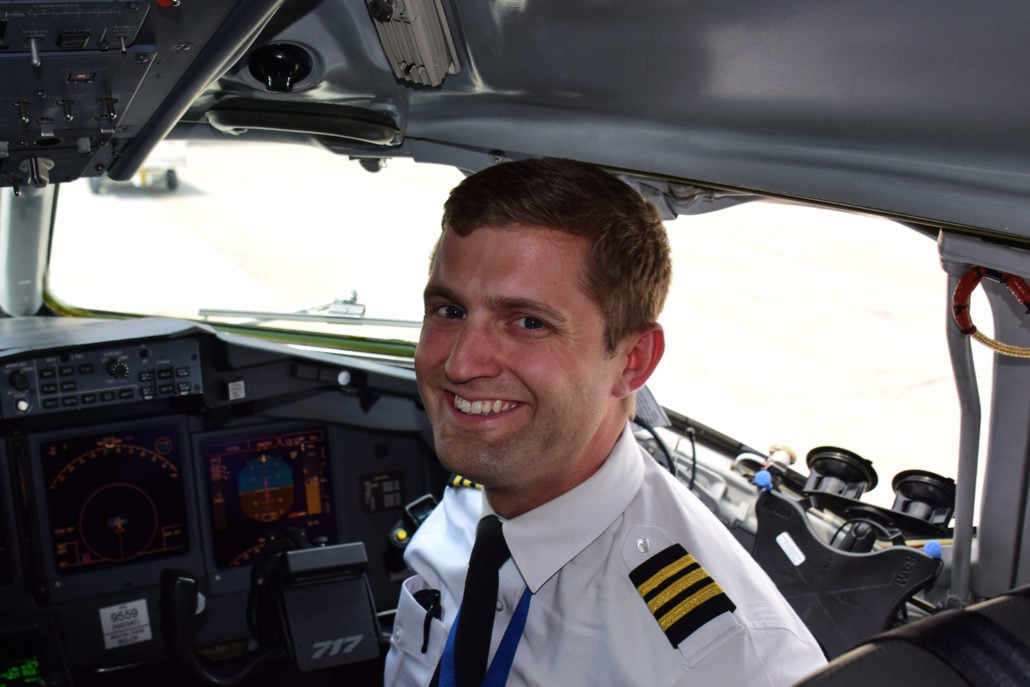
In our Ask a Pilot series, pilot Spencer Marker answers one of your aviation-related questions each week. See past installments here and submit your own to Whitney@johnnyjet.com.
The question
How do you overcome jetlag?
—Stephen S.
The answer
Hi Stephen. Thank you for writing in and being featured in this week’s Ask a Pilot. As frequent travelers know, whether it’s jumping a single time zone or ten, jetlag is always the end result of a long international journey. For pilots, jumping time zones is almost a constant during the course of our work week. How we manage jetlag, and fatigue in general, is paramount to maintaining a safe flying experience.
Managing sleep
When people step on to any airplane in the U.S., they have every right to expect a professional and well-rested crew at the controls. It doesn’t matter if it is 5am or 11pm. The airline industry is built on mutual trust between passengers and their flight crewmembers. This is a responsibility that my colleagues and I take very seriously. As such, there are several tools pilots use in order to manage their sleep in order to arrive at the airplane refreshed and ready to go, regardless of departure time, time zone or continent.
No example illustrates sleep management more than working a dreaded red eye. These overnight flights require flight crew members to alter their normal sleep pattern in order to stay alert and properly rested.
When I would fly red eyes (frequently LAX-JFK), I would start my day normally, generally rising at about 9am. I’d go about my business for the day and get a good workout in. After lunch, when my body is experiencing a normal circadian low, I would lay down to take a long afternoon nap, generally two to three hours. I’d wake refreshed in time for dinner, make a pot of coffee, kiss my fiancée goodbye, and head to the airport to start work.
So the combination of additional rest and caffeine was the way I managed to shift my sleep schedule in order to maintain alertness when flying through the night.
Additionally, upon arrival at my destination, I would try to keep my body as close as possible to my home sleep schedule. This meant going to sleep about 7am Eastern Time (4am Pacific) and sleeping until roughly 2pm (11am Pacific). This way, when we are ready to fly back to the west coast that evening, I’m still acclimated to Pacific Time, thereby defeating potential jetlag.
Long-haul international flights are almost always flown with extra pilots, sometimes up to four at a time. This way, while there are always two up front, the additional pilots can get some rest. Then, at prearranged intervals, the pilots will switch places, with the flying crewmembers taking a rest break and the resting pilots taking over flying duties.
Combatting jetlag
For me, it has always been “the best defense is a good offense” approach to minimizing jetlag. So I make sure I’m properly rested, keep my body on my home time zone (to the extent possible) and, if necessary, a bit of coffee always helps. For my passengers, I’d say to use the flight to get as much rest as possible. Sleep aids like melatonin always help me fall asleep on flights when I travel for pleasure.
If I’m traveling for fun and intend to stay in a destination for a while, I always try to push myself to stay awake as long as possible after arrival, generally until the early evening. If I happen to wake up very early the next morning, I’ll generally go wander around again, finding a cup of coffee and taking in the early morning sights of my destination.
To sum up
Thanks again, Stephen. Most pilots rarely stay at a destination longer than 36 hours while working. So many times, we can stay acclimated to our home time zones to mitigate the effects of jetlag. If we happen to stay in one place long enough to become acclimated, pilots have a multitude of tools at their disposal to minimize jetlag. Whether it’s taking a nap in the daytime, coffee at night or any of the countless number of other strategies, our goal for every single flight is to earn the trust you’ve placed in us to provide a safe comfortable flight.
Do you have any tricks for managing jetlag? Post in the comments below! And if anyone has a burning aviation question or something you would like cleared up, drop us a line at Whitney@johnnyjet.com to get your question featured in an upcoming Ask a Pilot column.
Tailwinds,
—Spencer








Is it odd that I’ve never experienced jet lagged? I’ve flown quite a few times